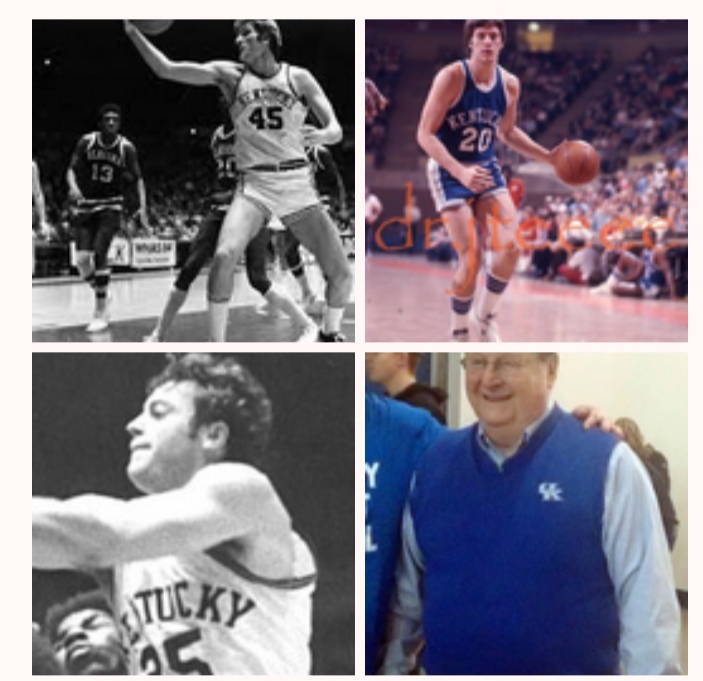The Night Kentucky Shattered Perfection: How Joe B. Hall’s Wildcats Ended Indiana’s Undefeated Dream and Proved UK Could Thrive Beyond Rupp
In the storied history of college basketball, certain games transcend the scoreboard. They become moments of transformation—nights when programs change direction, when dynasties are disrupted, and when legacies are redefined. One such night took place on March 22, 1975, in the NCAA Mideast Regional Final in Dayton, Ohio, when Joe B. Hall’s Kentucky Wildcats stunned Bobby Knight’s previously undefeated Indiana Hoosiers, 92–90.
It was more than a victory. It was a seismic shift, a symbolic passing of the torch, and a statement to the basketball world: Kentucky basketball would not fade in the post-Rupp era—it would rise, stronger and more resilient.
The Context: A Clash of Titans and a Fight for Identity
Coming into the game, Indiana was 34-0, a juggernaut led by the fiery and brilliant Bobby Knight, and widely considered the most complete team in the nation. They were the favorites to win it all and complete a perfect season—a feat last accomplished by UCLA in 1973.
On the other side, Kentucky was still searching for its new identity. Legendary coach Adolph Rupp had retired after 41 seasons and four national titles, leaving an enormous legacy to live up to. Joe B. Hall, his longtime assistant and successor, stepped into the role under the crushing weight of expectations. Critics questioned whether Hall could lead Kentucky with the same force and flair as his mentor.
But Hall had built something special in 1975—a veteran-led squad powered by seniors Kevin Grevey, Jimmy Dan Conner, Mike Flynn, and Bob Guyette. They weren’t flashy. They weren’t favored. But they were tough, disciplined, and hungry to prove something.
The Game: An Instant Classic
From the opening tip, the game was electric. Grevey scored 33 points, cutting through Indiana’s defense with precision and poise. Every possession felt like a heavyweight exchange, with the Wildcats answering every Hoosier surge.
Indiana, despite losing star forward Scott May to a broken arm weeks earlier, played with the same aggressive energy that had fueled their undefeated run. But as the clock ticked down, it was clear: Kentucky was not backing down.
With the game on the line, and the weight of history pressing on both teams, the Wildcats executed with poise. Their shots fell. Their defense held. And when the final buzzer sounded, Kentucky had pulled off the unthinkable: handing Indiana its only loss of the season and advancing to the Final Four.
The score: Kentucky 92, Indiana 90.
The Aftermath: A New Era of Confidence
The impact of the victory extended far beyond the court. For Kentucky fans, it was a moment of emotional release—a declaration that life after Rupp would not mean decline, but reinvention.
“That game told the world that Joe B. Hall was more than just Rupp’s replacement,” said a former UK player. “He was the right man to lead Kentucky into the future.”
Though the Wildcats would fall to UCLA in the national championship game, the win over Indiana remains the defining moment of the 1975 season—and one of the proudest in UK history.
As for Indiana, they would rebound in historic fashion. The following year, May returned healthy, and the Hoosiers completed their mission—finishing 32-0 and winning the 1976 national title, becoming the last NCAA men’s team to go undefeated to this day.
But in 1975, on that unforgettable night in Dayton, it was Kentucky who shattered perfection, and in doing so, began writing a powerful new chapter of their own.
Legacy of the Game
Nearly five decades later, the echoes of that victory still ring in Lexington. Joe B. Hall, who passed away in 2022, is remembered not only for continuing Rupp’s legacy but for carving out his own—a legacy forged in belief, resilience, and that unforgettable night in March.
That game wasn’t just about beating Indiana. It was about proving that Kentucky basketball wasn’t a dynasty of the past—it was a force for the future.
And for fans who witnessed it, that night will forever be remembered as the moment UK basketball found its voice again.






















